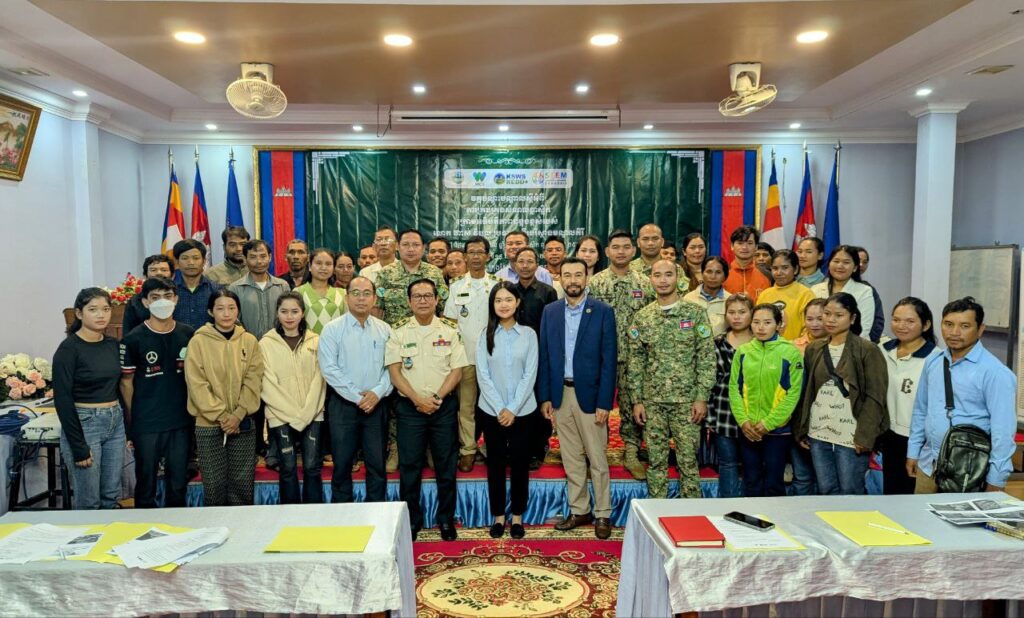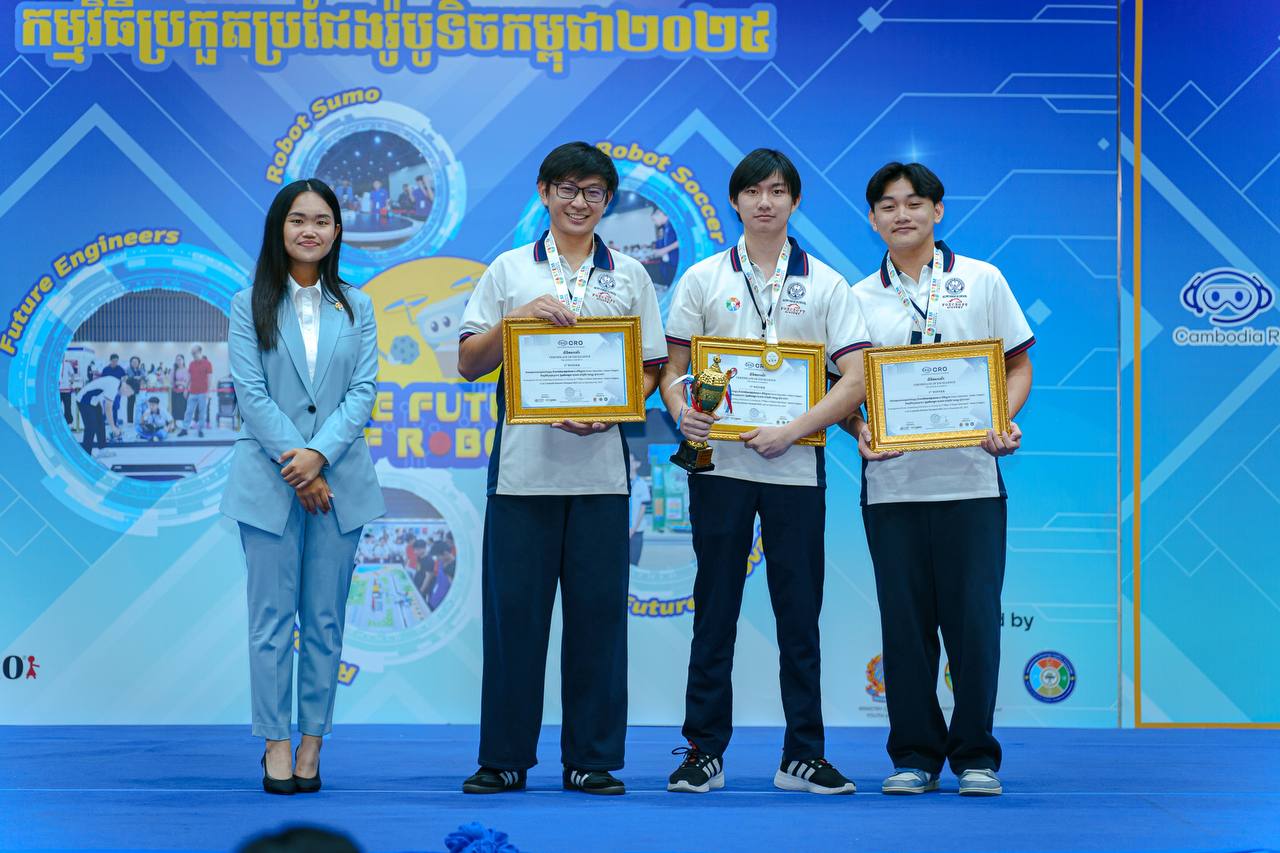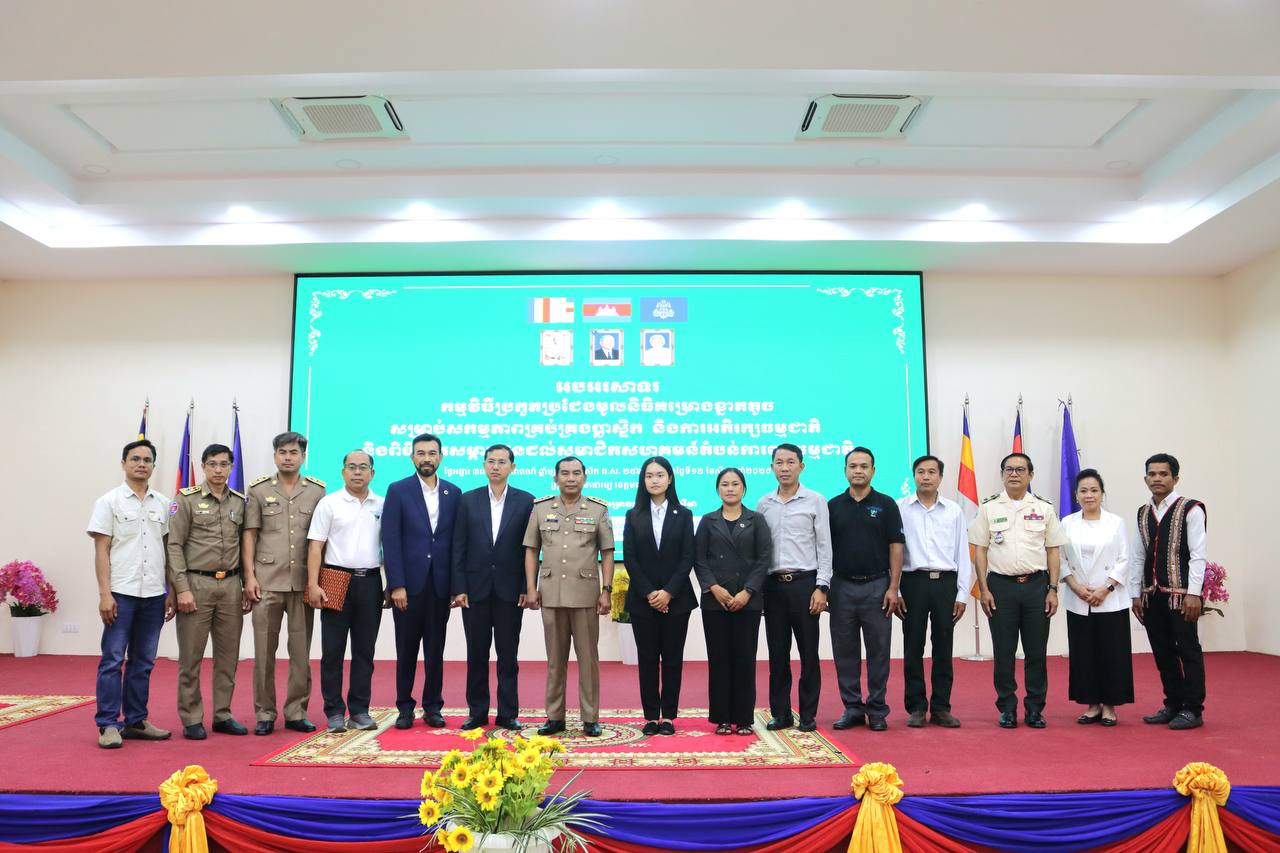The event brought together 100 participants from 8 Community Protected Areas within the Keo Seima Wildlife Sanctuary — all united by one goal: to reduce plastic waste and protect biodiversity. 

We were honored by the presence of the Mondulkiri Provincial Director of Environment, STEMEOC’s Executive Director, and a WCS Cambodia representative, whose support highlighted the importance of community-driven conservation efforts.
Together, we’re empowering local communities to take meaningful action for a cleaner, greener future. 
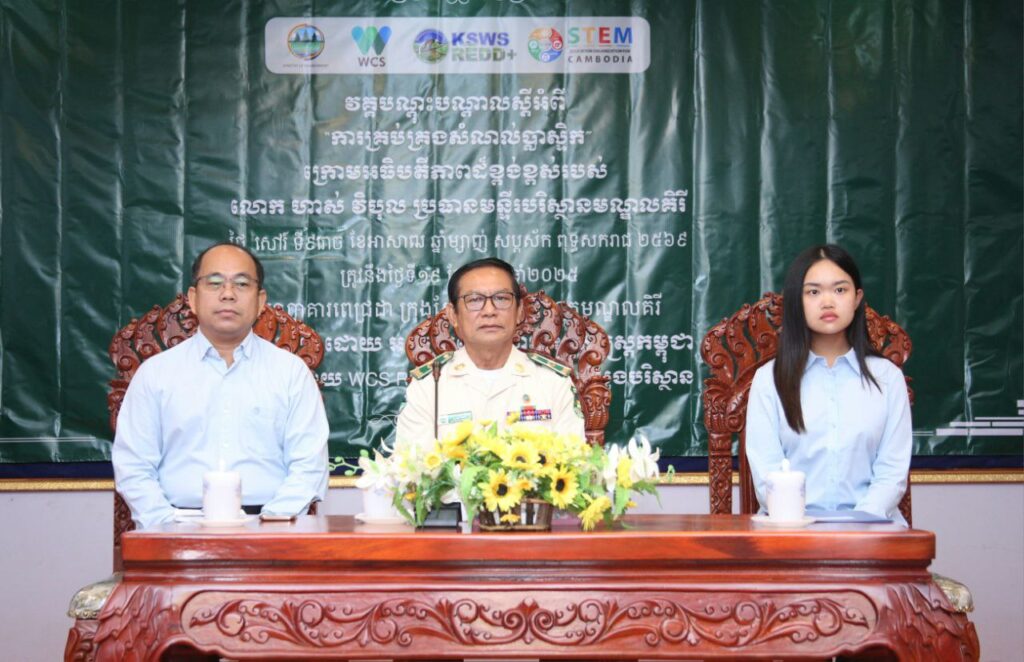
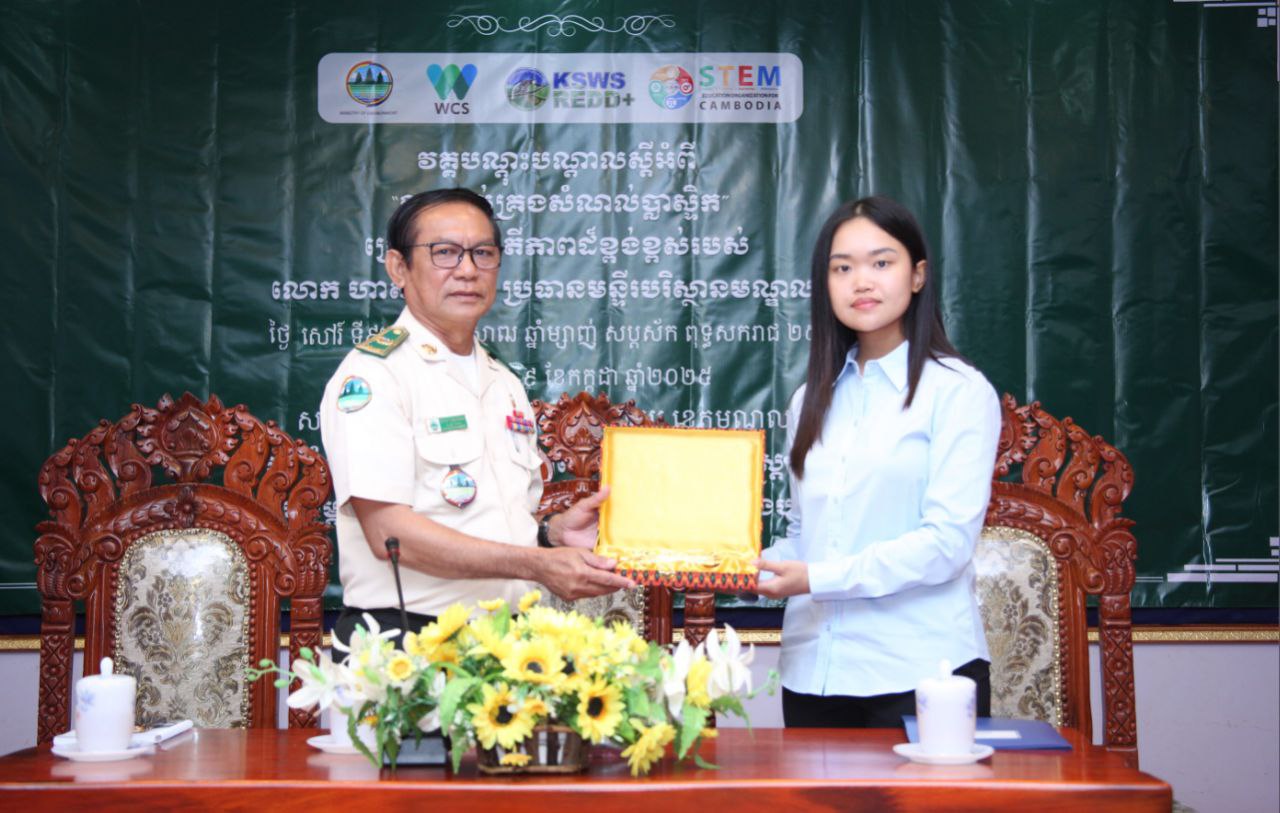
I. Background
The Wildlife Conservation Society (WCS) began its conservation work in Cambodia on December 1, 1999, responding to growing threats to globally significant ecosystems. Since then, WCS Cambodia has evolved into a major force for environmental protection, celebrating 25 years of impact in 2024.
Its main focus’s themes include Keo Seima Wildlife Sanctuary, Northern Plains Landscape, Tonle Sap Lake and Floodplain, Conservation Project, Koh Kong River Systems, and the Mighty Mekong River Corridor. WCS Cambodia blends scientific research, community engagement, and government partnerships to protect biodiversity while improving local livelihoods.
The STEM Education Organization for Cambodia (STEMEOC) has obtained financial support from WCS to execute a project entitled ‘Sustainable Alternatives to Plastic Use and Conservation Education.’ This initiative is entirely endorsed by the Ministry of Environment and will operate for five months, from May 1 to September 30, 2025. As part of the assignment, STEM will provide basic knowledge on plastic waste management, effective waste management, and alternative packaging to WCS Commune Protect Areas’ beneficiaries.
II. Workshop’s Objectives
The training program is to provide essential knowledge to participants regarding the detrimental effects of plastic waste on biodiversity, efficient waste management practices, and alternative packaging materials to plastics.


